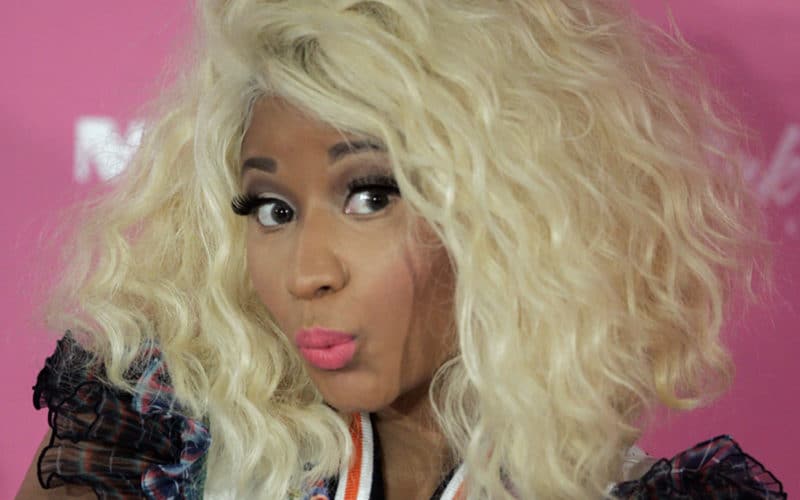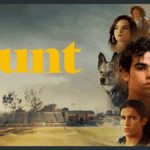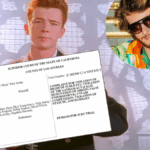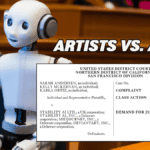After finding a triable issue of fact on whether Nicki Minaj was responsible for leaking “Sorry” to a New York DJ, the court holds that Minaj’s initial creation of her derivative song did not infringe Tracy Chapman’s copyright in “Baby Can I Hold You.”
In an article last month here on Copyright Lately, I offered up my thoughts on Tracy Chapman’s copyright infringement lawsuit against Nicki Minaj. I was particularly interested in whether Minaj’s conduct in creating a new derivative work based on Chapman’s composition would qualify as a “fair use” under the Copyright Act. I was also interested in whether Minaj had ever really patched things up with Cardi B.
Yesterday, Judge Virginia Phillips answered yes to the first question, granting Minaj’s motion for partial summary judgment. For some strange reason, my second question didn’t come up at all. Here’s a copy of the court’s order. Now let’s break it down.
The Claims
As a reminder, Chapman’s lawsuit alleges that Minaj infringed her copyright in two ways: first, by creating a new derivative work without Chapman’s permission, and second, by distributing that work to DJ Flex, who then played it on his radio show.
Minaj’s lawyers made a strategic decision to slice and dice these two claims for purposes of their motion. They focused on Minaj’s initial creation of the “Sorry” demo, which Minaj asserts was an “experiment” before she sought permission to release it commercially. Chapman, who is well known in the music industry for denying sampling requests, turned Minaj down several times.
As for the distribution claim, Minaj contends that while she had originally planned to send a copy to Flex notwithstanding Chapman’s denial, she had a “change of heart” at the last minute. While someone leaked the unreleased demo, Minaj swears it wasn’t her, and says that a jury needs to decide this issue.
Chapman’s lawyers argued that regardless of whether the creation of a derivative work for purposes of “artistic experimentation” or to secure consent might be fair use in an appropriate case, that was not the case before the court. They claim that by continuing to work on “Sorry” after Chapman’s denial and then (allegedly) sending it to a popular DJ to play on the radio, Minaj did everything in her power to make sure the public heard the song.
The Court’s Ruling
In its summary judgment order, the court first held that there were disputed issues of fact as to Minaj’s alleged involvement in the distribution of the song. Therefore, that particular infringement claim needs to be decided by a jury. The court next turned to the question of whether Minaj violated Chapman’s exclusive right to prepare derivative works by creating the new song in the first place.
Moving through the Copyright Act’s four fair use factors, Judge Philips noted that Minaj had acknowledged that she would need a license to exploit a new work based on “Baby Can I Hold You.” The court held that Minaj’s mere desire to release the work on her album didn’t give her actions a purely “commercial” purpose. The court cited Sundeman v. Seajay Society, the Fourth Circuit case that we first discussed here, which held that the creation of a derivative work was a fair use where the defendant only intended to publish the work if it could obtain permission from the copyright owner.
in finding that the “purpose and character” of the use weighed in Minaj’s favor, the court also considered the “public benefit” of allowing these types of uses, notwithstanding any commercial gain:
[A]rtists usually experiment with works before seeking licenses from rights holders and rights holders typically ask to see a proposed work before approving a license . . . . A ruling uprooting these common practices would limit creativity and stifle innovation within the music industry. This is contrary to Copyright Law’s primary goal of promoting the arts for the public good.Summary Judgment Order, Chapman v. Maraj et al.
In discussing the effect of Minaj’s work on the market for Chapman’s song, the court found that the creation of the work for “private experimentation” and to “secure a license from the license holder” had no impact on the commercial market for Chapman’s original. With the most important fair use factors tipping in her favor, the court granted summary judgment for Minaj based on her initial creation of “Sorry.”
My Take
All else being equal, the initial creation of a derivative work for the sole purpose of securing consent should be considered fair use. The first thing that any copyright owner is going want to know when approached for permission to adapt her work is how it’s going to be used in the new work. That requires that some sort of derivative work be made before permission is obtained, whether it be a set of lyrics, a rough demo or the finished product itself.
But as I noted in my last post on this case, the ultimate purpose to which a so-called “intermediate copy” will be put seems relevant to a determination of whether that copy is a fair use. For example, if a jury were to find that Nicki Minaj planned to find a way to distribute her song come hell or high water regardless of whether Tracy Chapman ever said yes, it’s hard to ignore that evidence in examining whether the initial reproduction was fair.
By severing the claim on the creation of “Sorry” from the claim on its ultimate distribution, the court may have inadvertently signaled a bright line rule that intermediate copying is always fair use. If so, this would seemingly conflict with the Ninth Circuit’s approach in cases like Sega Enterprises v. Accolade, where court considered the “ultimate use” to which a work was put before deciding whether an intermediate copy was fair.
That the court didn’t send the entire case to trial in Chapman is also somewhat surprising in light of various comments in its summary judgment order in which the court appeared to question Minaj’s credibility. For example, in its discussion of the unlawful distribution claim, the court found that Minaj violated the Ninth Circuit’s “sham affidavit” rule by submitting a declaration that contradicted her earlier deposition testimony and discovery responses. The court pointed out that Minaj had previously denied that she asked DJ Flex to play “Sorry,” but then, when confronted with text messages, asserted that she did plan to send the song to Flex before having a “change of heart.”
Given the conflicting evidence with respect to the intended distribution of “Sorry,” it stands to reason that Minaj’s original motives in continuing to work on her song after being denied permission by Chapman could affect her fair use defense. After all, it’s not every day that you see the terms “sham affidavit” and “fair use” in the same ruling. By splitting up Chapman’s claims for purposes of summary judgment, the court has tied the jury’s hands, at least to some extent.
The trial on Chapman’s unlawful distribution claim is currently scheduled for March 2, 2021. We’ll have to see whether that date sticks in light of the ongoing COVID situation. For now, Minaj doesn’t have to say she’s sorry about “Sorry.”
As always, I’d love to hear what you all think. Please let me know in the comments below or on your social media platform of choice @copyrightlately.






